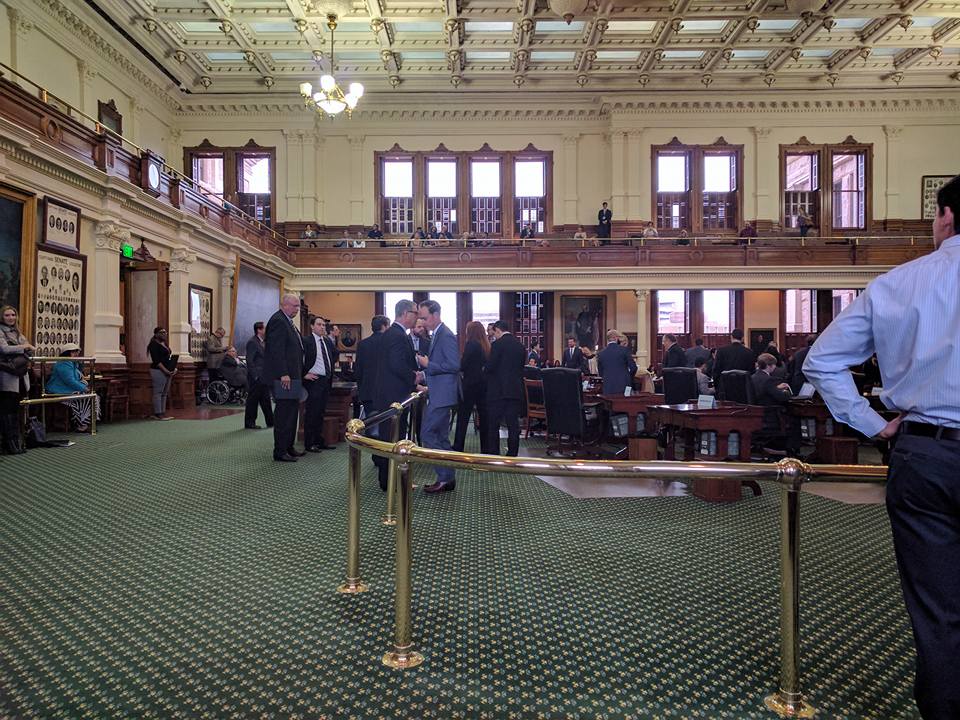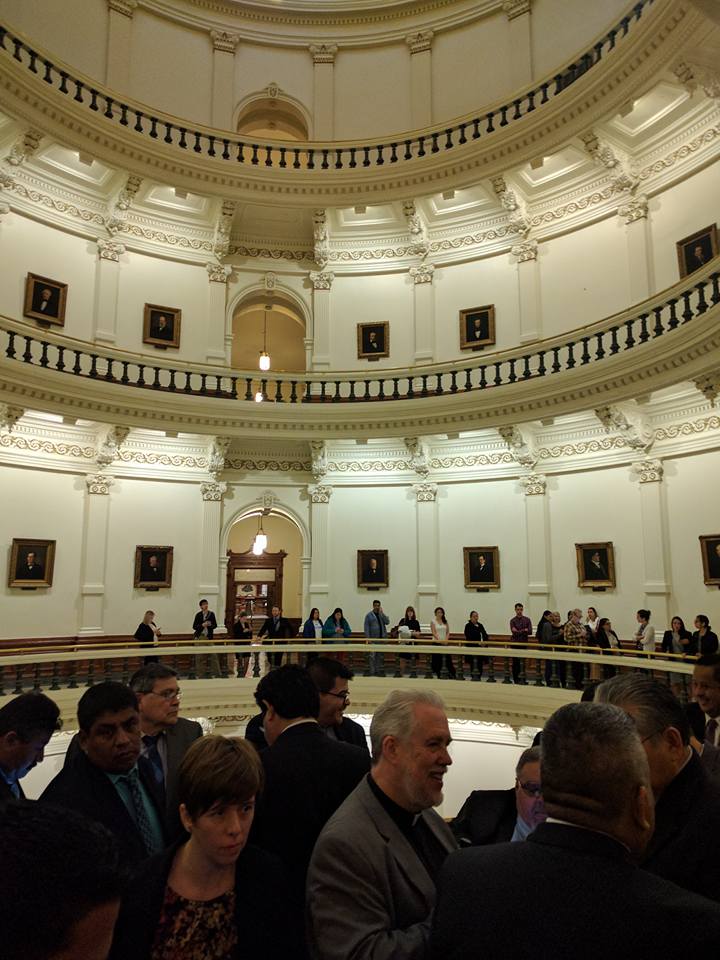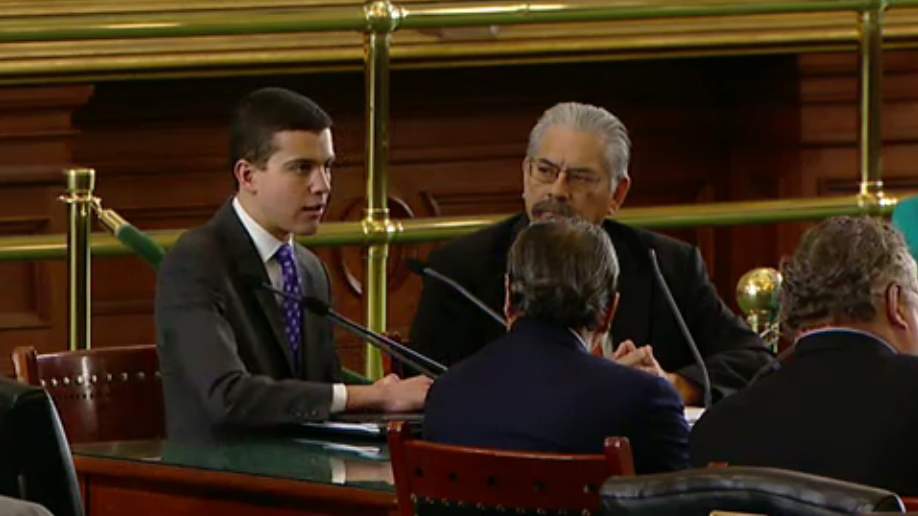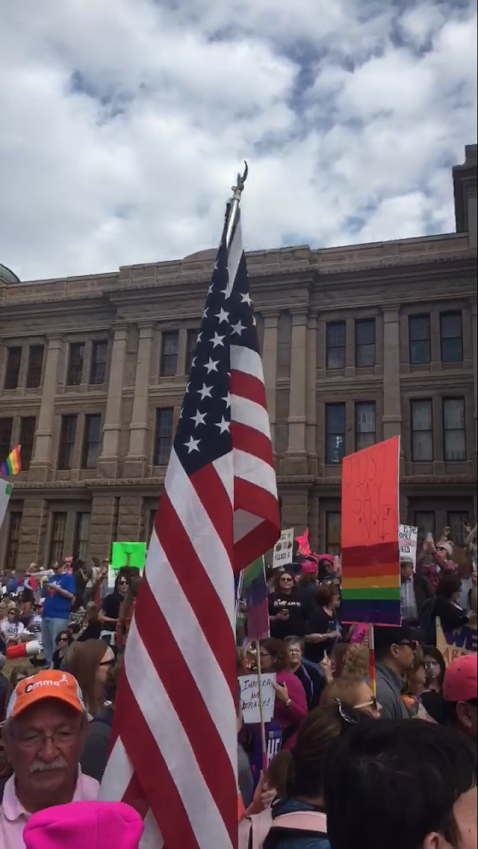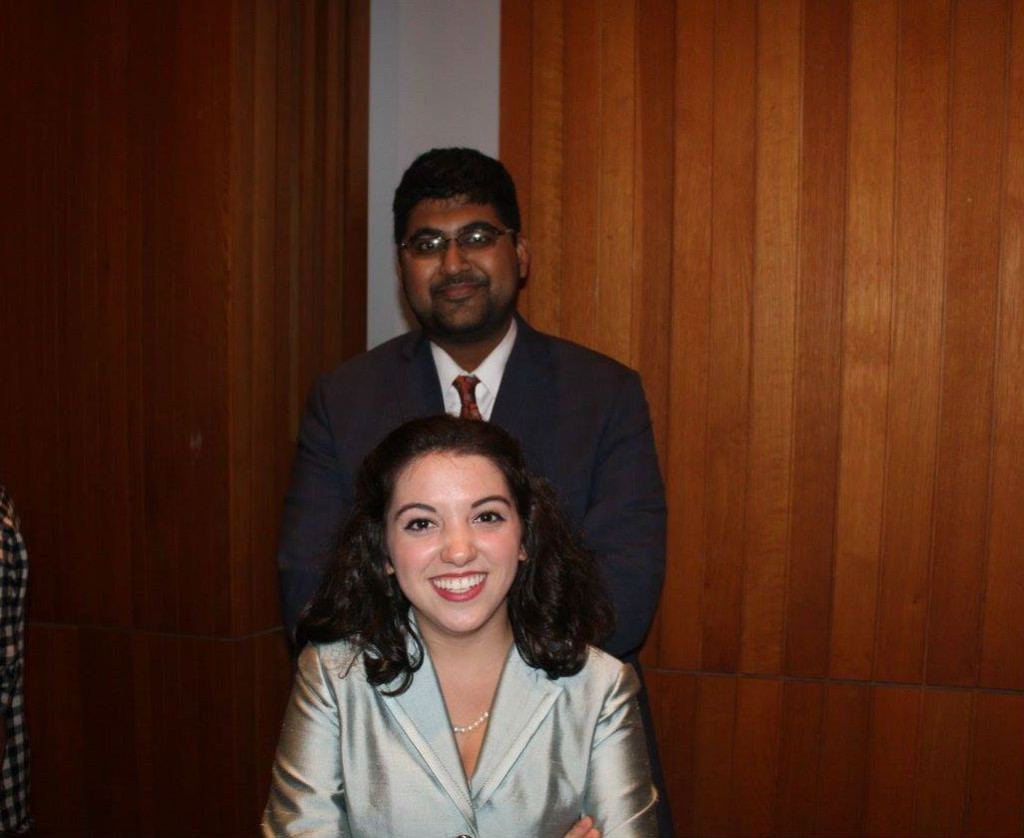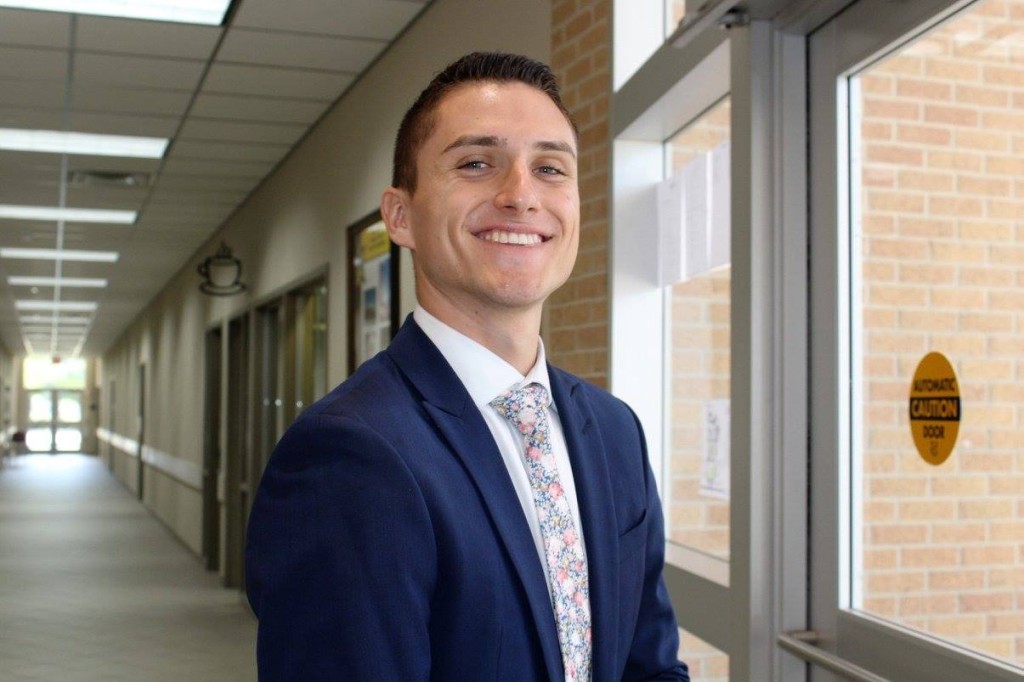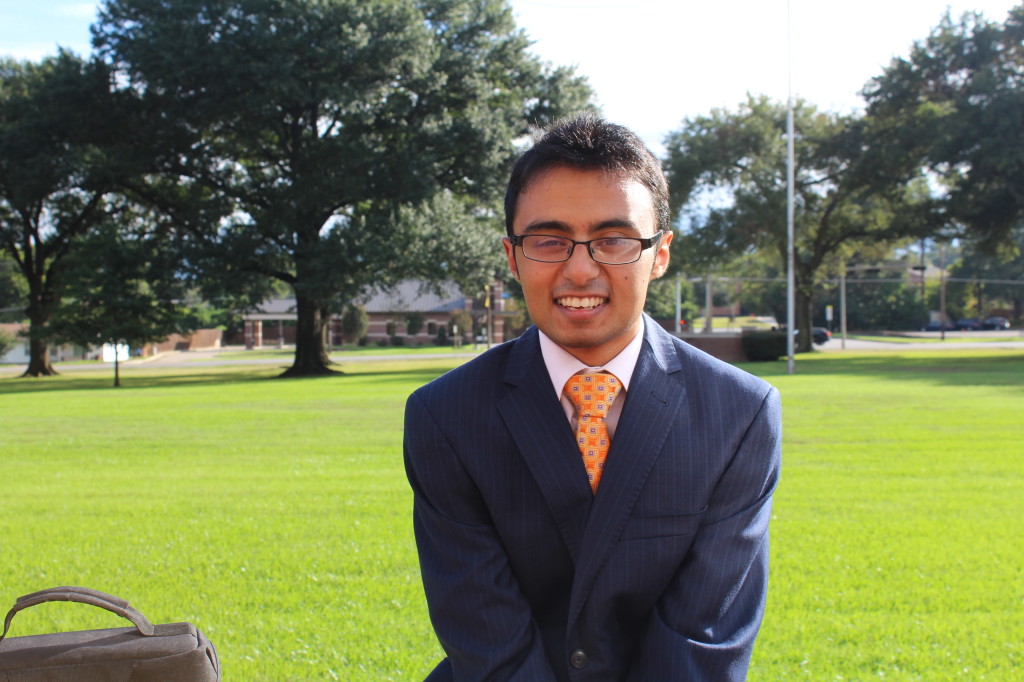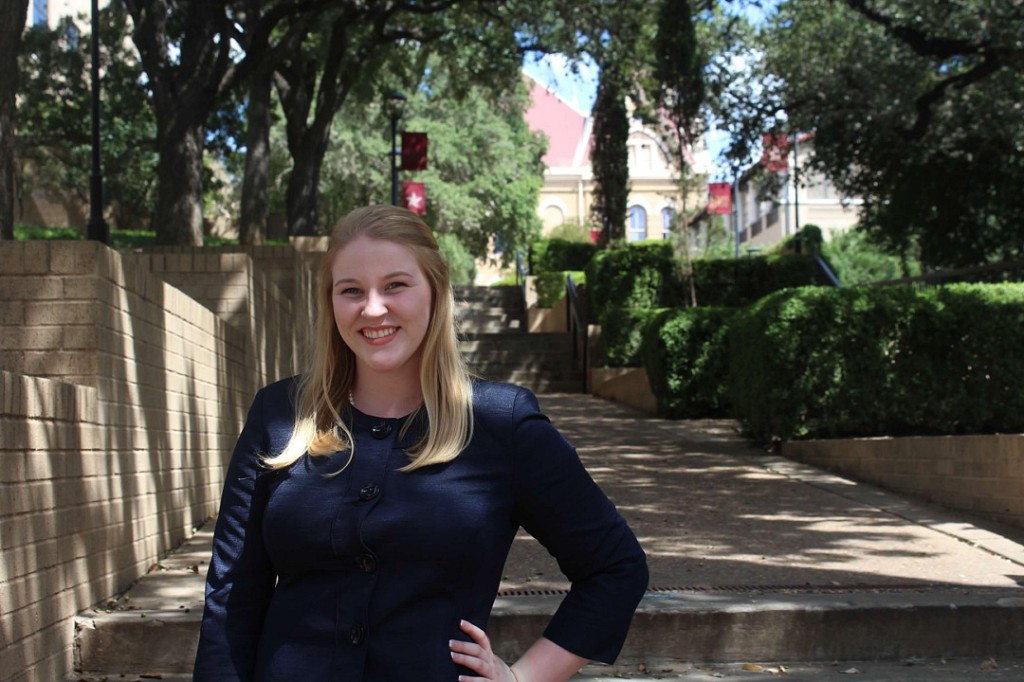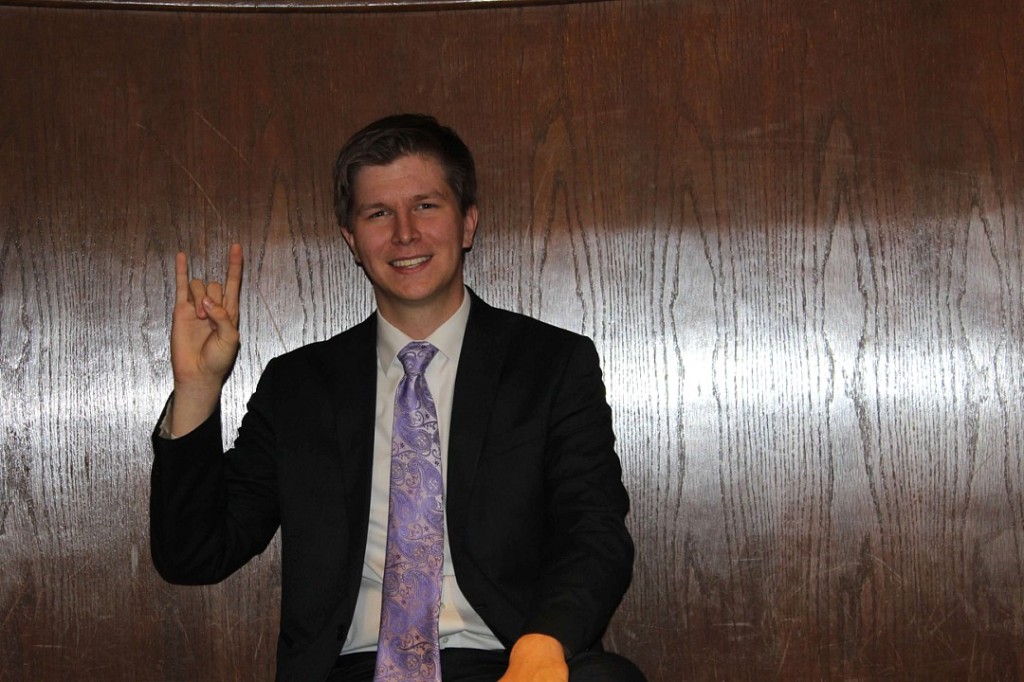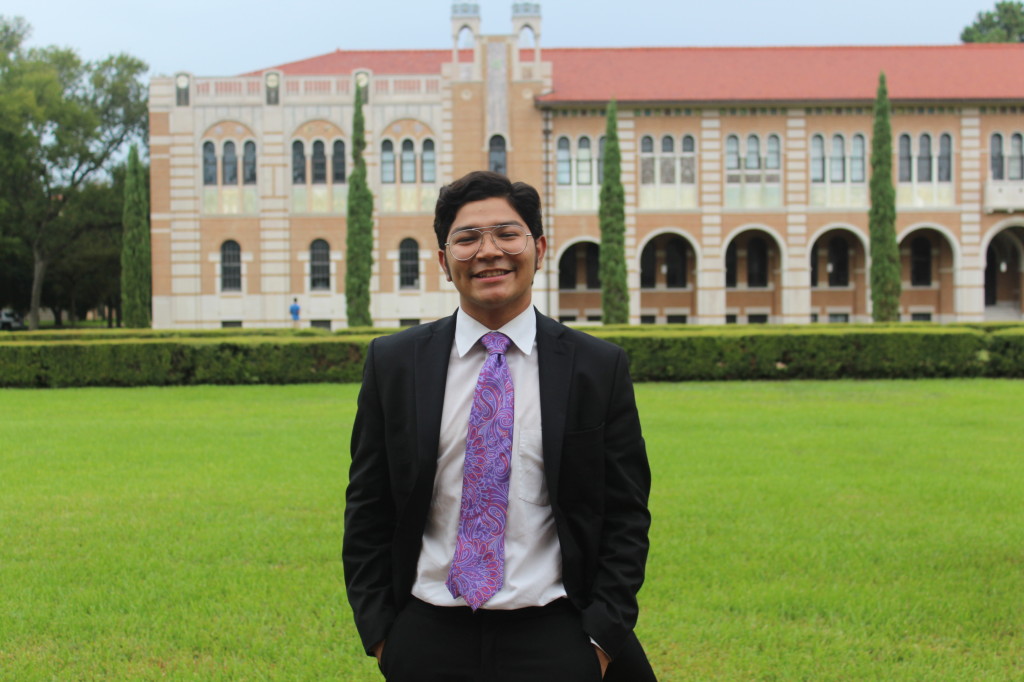How to Testify
by: Alex Meed
photos from: Alex Meed; Texas Senate video feed
A loud, insistent series of beeps jolts me awake. Its source is my phone, where the numbers “5:30” appear in the corner of the tiny screen. My hands and feet move faster than my brain as I wash my face, comb my hair, don my suit, and scarf down a hasty breakfast before bolting out the door.
But this isn’t a tournament weekend, it’s a Thursday. My speech teammates are fast asleep, my Persuasive Speaking handouts left behind in my room. And a bit under two hours after I awoke, I would step through the North Entrance of the Texas Capitol.
On February 2, 2017, alongside hundreds of my fellow Texans, I testified against SB 4, a bill to ban sanctuary cities and revoke their state grant funding. It was my first ever time testifying—and it was exciting, nerve-racking, and thrilling all at once. I wanted to talk about my experiences, in the hopes that more of you will seek to replicate them.
I first heard about SB 4 when it showed up on my Facebook feed. I’d been following the case of Travis County Sheriff Sally Hernandez, who’d been embroiled in a fierce debate over her own sanctuary city policies. But when I saw that SB 4 was scheduled for a hearing, and how many people were planning to testify, I figured I’d add my own voice.
I decided to testify a few days before the hearing. On Tuesday evening, I started piecing together my testimony. I finished it up on Wednesday, printed it out, practiced a couple of times, and then went to sleep.
When I walked into the Capitol and found the Senate Chamber, one thing struck me: the crowd was massive. At 7:30a, an hour before the hearing, the second floor rotunda was already packed with people. And, reassuringly enough, many were against the bill. Those who testified during the hearing represented a vast cross-section of Texas, from immigration attorneys to members of the clergy to people who were themselves undocumented. Eventually, at around 1:15p, after I had heard so many people telling their stories and making their arguments, it was my turn.
I was a bit caught off guard when I was called. I didn’t have time to gather my notes before the committee chairman told me to begin. Fortunately, I already had a case planned out in my head, so I began along that course. My one-and-a-half minutes of testimony were short, and yet another drop in the bucket of testimony that would drench the committee. But even though I was trembling with nervousness—after all, I was seated before some of the most powerful people in Texas—I was glad to be making my case, and speaking on behalf of a cause I believed in.
cropped still frame from official hearing livestream, at timestamp 4:39:33
Despite our best efforts—and overwhelming opposition—SB 4 passed the committee later that evening on party lines, 7–2. That came as no surprise. Neither did its passage through the full Senate the following Wednesday. I’ve never subscribed to the delusion that stopping this bill would be easy, or that testifying would be sufficient. But I wanted to make sure that I helped amplify the voices of the most vulnerable of us all, of those whom SB 4 would marginalize. And even though the members of the committee in the end didn’t listen to our concerns, I wanted to make sure they heard us anyway.
A democracy requires that we, as citizens, speak up. There are many ways to do so, and testifying is only one of them. The resistance against a Trump and Abbott administration will force us to raise our voices and demand that those elected to represent us actually do so. Because even if they cover our ears and pretend to ignore us, they’re listening—and if they don’t listen to our words, they’ll listen to our votes.
Stay engaged. Stay informed. Texas Fight.
You can read my written testimony or watch my oral testimony (timestamp 4:38:30; Flash required). If you’re interested in testifying, I’ve published a comprehensive guide on how to do so.
The opinions expressed in this article are the author’s alone and do not necessarily reflect the views of the Texas Speech team.

